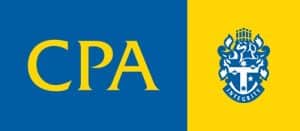As a business owner, the end of the financial year brings both stress and opportunity. Managing tax liabilities and ensuring compliance with superannuation contributions can feel overwhelming, but they are crucial for maintaining your business’s financial health and legal standing.
We understand that every dollar counts. Strategically timing super contributions can significantly reduce your tax bill and enhance your business’s compliance. This article will clarify superannuation contributions’ complexities and provide actionable strategies for meeting your obligations without compromising cash flow. By the end, you’ll understand how to leverage super contributions to benefit your business now and in the future.
Importance of Timely Superannuation Contributions
June 30 is a key date for businesses and individuals alike. For super contributions to be recognised within the current financial year, they must be settled in your super fund well before this date. We advise aiming for a cut-off around June 10. This buffer ensures that your contributions are processed and cleared in time, qualifying for tax deductions in the current financial year.
Making your super contributions before the cut-off date is essential for several reasons:
- Tax Deductions: Contributions made to super are tax-deductible up to $27,500 for the 2024 financial year. This includes employer contributions (Super Guarantee) and personal contributions for which you claim a tax deduction.
- Reducing Taxable Income: Maximising your concessional contributions can significantly reduce your taxable income, potentially lowering your overall tax liability.
- Cash Flow Management: Proper timing allows for better cash flow management, ensuring funds are allocated efficiently without disrupting business operations.
Differences Between Sole Traders and Businesses
For sole traders, super contributions are a way to provide for their retirement while managing taxable income. Since sole traders do not receive super guarantee contributions from an employer, they must be proactive in making personal contributions. These are deductible up to the concessional contributions cap, provided they meet the eligibility criteria and notify their fund with a Notice of Intent to claim a deduction.
For businesses, especially those with employees, it’s not just about planning for the future but also fulfilling legal obligations. The Super Guarantee (SG) requires employers to contribute at least 11.5% of an employee’s ordinary time earnings to their super. These contributions must be made at least quarterly, but making them before the June 10 cut-off ensures they are deductible in the current financial year.
Legal Obligations and Timing Differences
Business owners must remember that while the legal deadline for SG contributions is quarterly, contributions need to be settled well before June 30 to count for tax deductions in the same financial year. Delayed payments lead to missed tax planning opportunities and potential penalties.
Super Contributions: Salary vs. Non-Consistent Hours
The impact of super contributions on tax planning can vary depending on how your business structures its payments. For salaried employees with consistent earnings, super contributions are straightforward. They can be budgeted and planned for at the start of the financial year, allowing for strategic tax planning and better cash flow management.
Businesses with employees working variable hours might find estimating the amount of super payable until year-end challenging. Maintaining accurate records and adjusting contributions to meet the SG requirements and maximise tax benefits is crucial.
Navigating Super Contributions: Minimise Taxes and Maximise Compliance
Correctly timing your super contributions is a critical aspect of tax planning that can save your business significantly in taxes while ensuring compliance with superannuation laws. Whether you’re a sole trader looking to maximise your tax return or a business owner navigating the intricacies of employee super contributions, understanding these principles can lead to better financial health for you and your employees.
At Lift Accounting & Advisory, we’re dedicated to helping you navigate these complexities. If you need personalised advice or assistance with your superannuation strategy, don’t hesitate to contact us. Let us help you implement these insights for a prosperous financial future.













